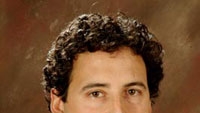White space war breaks out between broadcasters and FCC

With broadcasters on the warpath against an FCC vote to allow unlicensed Internet devices to operate in white space spectrum, major high-tech figures, including Microsoft’s Bill Gates, urged the commission to go forward with its Nov. 4 meeting.
Broadcasters have asked for a delay, but the FCC has yet to respond to the request.
Last week, Gates called both Martin and Democrat FCC commissioner Michael Copps in support of the white spaces proposal. “Mr. Gates observed that adopting the flexible operating rules advocated by the White Spaces Coalition (of which Microsoft is a member) is essential in enabling white space devices that will provide affordable broadband opportunities and create new markets for innovative applications and services,” the FCC said in its notice about the communication.
“Mr. Gates also emphasized the need to conclude this proceeding on Nov. 4 to allow companies to begin the process of bringing the benefits of white spaces to consumers,” the FCC said.
Chairman Martin is reported to have at least three soft votes — the necessary number to win — in support of the item as the Nov. 4 vote date approaches.
The NAB, as well as ABC, CBS, NBC and their affiliate stations; and noncommercial broadcasters filed various emergency petitions last week asking the FCC for a public comment period before voting. All the broadcasters claim the use of unlicensed devices would interfere with their DTV signals.
NBCU’s Jeff Zucker, Disney’s Robert Iger, CBS’ Leslie Moonves, and News Corp.’s Peter Chernin wrote to the FCC, arguing the testing does not represent “the kind of solid scientific foundation the commission normally requires before proceeding to adopt a rule allowing a new service.”
Get the TV Tech Newsletter
The professional video industry's #1 source for news, trends and product and tech information. Sign up below.
Joining the parade of opponents was the New York City Council, which passed a resolution asking the FCC to hold off on a vote until a formal comment period is completed. The council is concerned about interference of wireless microphones used in many of the city’s entertainment venues.
The FCC disagreed with the broadcasters, concluding that mobile, unlicensed devices like laptops and smart radios can be allowed to share the white spaces in the DTV spectrum band under certain conditions and power limits.
Later in the week, some broadcasters suggested a possible compromise, though the conditions were more stringent than those proposed by the FCC. They wanted power levels of devices limited to 5mW, rather than the 40mW favored by the commission. The broadcasters also asked for a “safe harbor” for wireless microphones, power limits to protect against direct pickup interference to cable, mandatory geolocation, and disallowing devices that rely only on sensing when spectrum is unused.
The aggressive conduct by the broadcasters was criticized by the Free Press, a major promoter of the use of white spaces for low-cost Internet access. “As longtime supporters of quality local television, we are shocked and dismayed by the NAB’s inflammatory accusations,” the group said.
“This strategy of misdirection and hysteria is intended to distract attention from sound policymaking at the FCC. Just because broadcasters aren’t happy with the results of the FCC’s exhaustive engi
neering report is no excuse for these unfounded claims,” said Josh Silver, the group’s executive director. “The FCC report is clear: White spaces technology won’t interfere with television signals. Having lost on the facts, the NAB has resorted to angry ranting. This crucial decision should be based on science, not who can shout the loudest. We urge the FCC to ignore the noise and open the airwaves to benefit everyone.”
